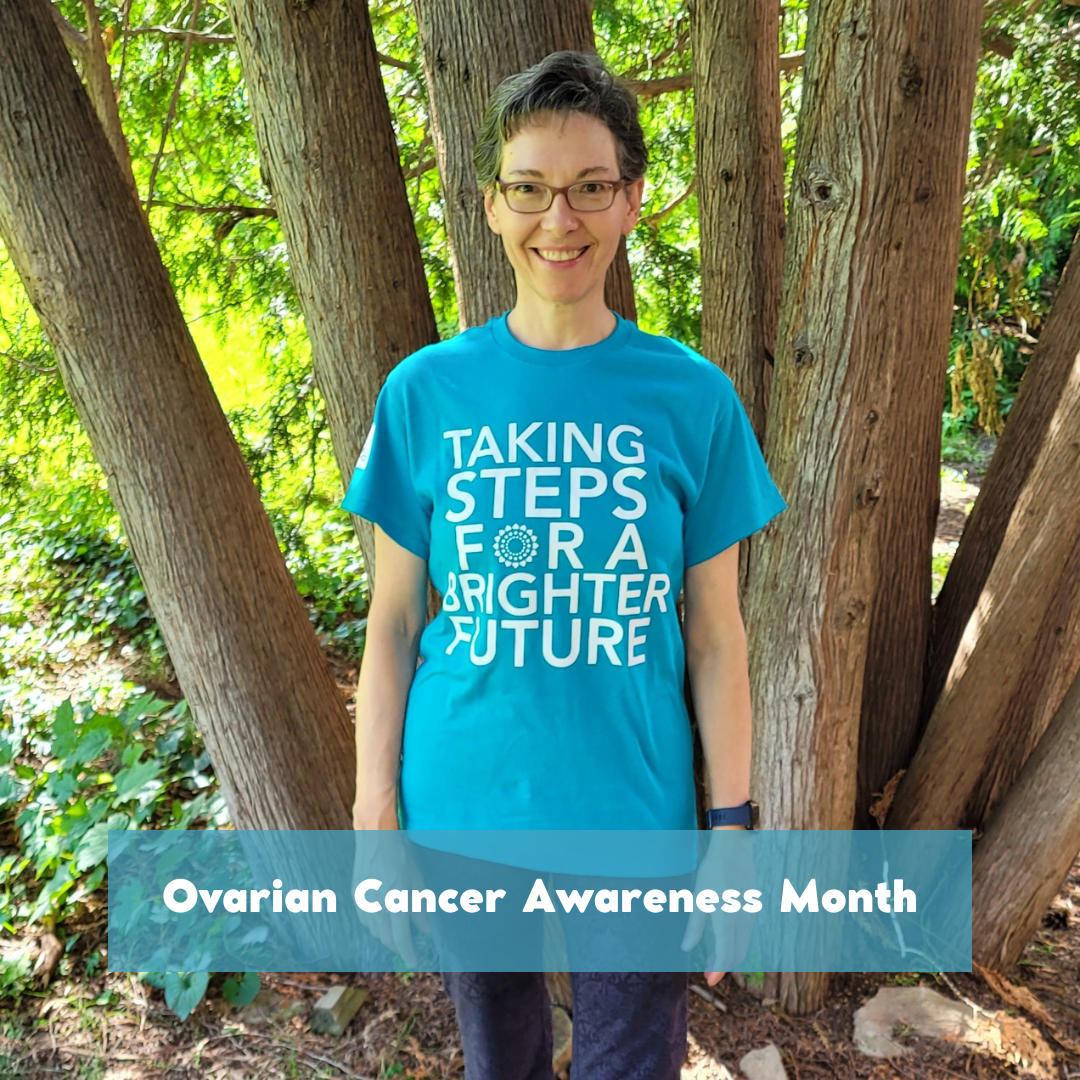[2022-09-01] The whispering cancer
September is Ovarian Cancer Awareness Month.
At this time of year, I typically turn to resources such as Ovarian Cancer Canada, which has an excellent page on Detection, to remind readers of the symptoms of the disease. But first, I want to share a link to a post on the Cedars-Sinai Blog: Ovarian Cancer: The Whispering Cancer. Dr. Kenneth Kim, director of Gynecologic Oncology at Cedars-Sinai, begins his post:
With no effective screening available, limited public awareness and no readily detectable early symptoms, ovarian cancer is sometimes called the "whispering cancer."
The term "whispering cancer" appealed to me the moment I heard it. Like many people diagnosed with ovarian cancer, I had few symptoms. Indeed, I had only one of the known symptoms for the disease: a need to urinate frequently. As Dr. Kim writes:
When patients do have symptoms, they tend to be symptoms that can have many causes and are easily dismissed.
When I called my doctor in early July 2020 because of my frequent urination, we both assumed that I had a bladder infection (we talked over the phone, as in-person appointments had been suspended because of the pandemic). My doctor sent a prescription to my pharmacy for an antibiotic.
Had it not been for abdominal pain, which I believe was associated with my gallbladder, I would never have gone to the emergency department in late July 2020. That's where tumours were found during an abdominal ultrasound and subsequent transvaginal ultrasound. A CA125 test the same day revealed a very high level of cancer antigen in my blood: 920 when a normal result is below 35. Taken together, these three diagnostic tests pointed strongly to ovarian cancer.
The disease's low incidence rate—only 1-2% of people with ovaries will be diagnosed with ovarian cancer in their lifetime—makes it unlikely that people who experience symptoms linked to the illness will think about ovarian cancer. Contrast that with breast cancer, which is diagnosed in about 12% of women at some point in their lifetime. Dr. Kim observes:
Compared to breast cancer, ovarian cancer is 10 times less common.... Everyone knows someone who had breast cancer, and because of that, the awareness is much higher—the entire NFL wears pink during Breast Cancer Awareness Month, but most people don't know when to wear teal.
Everyone following my blog can now say, "I know someone who had ovarian cancer." That's why I share my story and regularly write about the symptoms of the disease. Dr. Kim notes some of those symptoms in his post: "bloating, abdominal pressure, a feeling of fullness, diarrhea, constipation, acid reflux and nausea." But I prefer the longer list that I provided on World Ovarian Cancer Day 2022:
- Bloating or swelling of the abdomen (sometimes combined with weight loss)
- Difficulty eating or feeling full quickly, loss of appetite, heartburn, gas, indigestion or nausea
- Pain or a feeling of pressure in the pelvis or abdomen
- Increased urgency or frequency of urination
- Bleeding from the vagina that isn’t normal (such as heavy or irregular bleeding, bleeding between periods), especially after menopause
- Frequent discharge from the vagina that is clear, white or coloured with blood
- A lump that can be felt in the pelvis or abdomen
- Changes in bowel movements, such as constipation or diarrhea
- Back pain
- Fatigue
- Unexplained weight loss or weight gain
- Pain during intercourse
- Buildup of fluid in the abdomen, around the lungs or in the legs
- Difficulty breathing
Look for symptoms that are:
- New – they are not normal for you and may have started in the last year
- Persistent – they have been present for more than three weeks
- Frequent – you notice the symptoms happen frequently
For additional context, see Ovarian Cancer Canada's Signs & Symptoms, the Canadian Cancer Society's Symptoms of ovarian cancer and the American Cancer Society's Signs and Symptoms of Ovarian Cancer.
If you experience any of these symptoms and they are new, persistent and frequent, follow up with a healthcare professional. As Dr. Kim points out: "Waiting on these symptoms is what leads to more advanced cancer."



